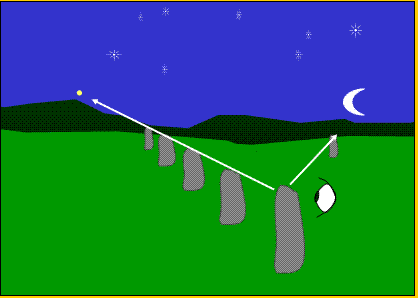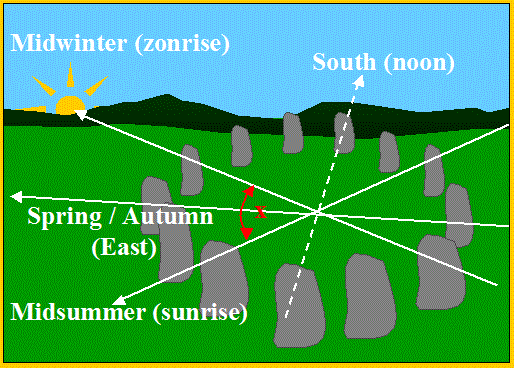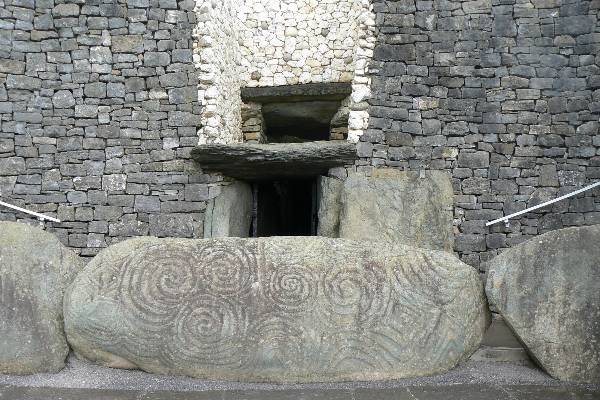Page content - Navigation bar - Next
page - Previous page - Index ABC (EN)
- Intro-EN
- NL ![]()

Intro-EN

Observation method
Megaliths are often useful to observe movements in the celestial sphere.
 Megalith's usability as observatory does NOT prove they where intend to!
Megalith's usability as observatory does NOT prove they where intend to!
Observations using a alignment
An alignment (a row of standing stones) can be used to
observe certain point on the horizon, for example the point of
sunrise on a specific moment like midsummer solstice. A combination
of lines of view can be used as calendar.
Also movements of the Moon, planets and stars
can be examined using an alignment. Farther standing stones and
remarkable landscape points can be used as lines of view.

Observations using a stone circle
A stone circle of course gives more possibilities; it can be used to construct a year calendar...

Around midwinter and midsummer during a week the sun seems to rise (or set) on the same point. This phenomenon is called the 'solstice'. This is a consequence of the Earth's elliptic orbit around the Sun.
"Observation tunnel"
Many chambered tombs are like a tunnel, sunbeams can only reach the chamber on specific moments, for example Newgrange (Ireland), where the sunbeams bring light into the chamber on winter solstice.

Entrance tomb Newgrange
So using a long tunnel we can make a date marker. If the
tunnel is directed east, to the spring-equinox
(around March 21) than also the sunbeams shall
light the tunnel during autumn-equinox (around September 23)
Well known as a "spring-equinox-marker" is Cairn 'T' in Loughcrew,
Ireland.
Of course also other dates can be marked, if
the tunnels is built in another direction.
An arrangement positioned to the south could also be used, because
the Sun's maximal ascension (noon) changes
during the year. During midwinter the Sun's ascension above the horizon
is lowest, the highest ascension is reached at noon around June 21. A southwards arrangement gives the discomfort of the blinding
sunbeams, dangerous for the observer.
In an arrangement directed to the point of sunrise or sunset, the sunlight won't
be to strong, but early in the morning the observation can be by troubled by
fog.
'Back to top' - Observatories (= Next page)